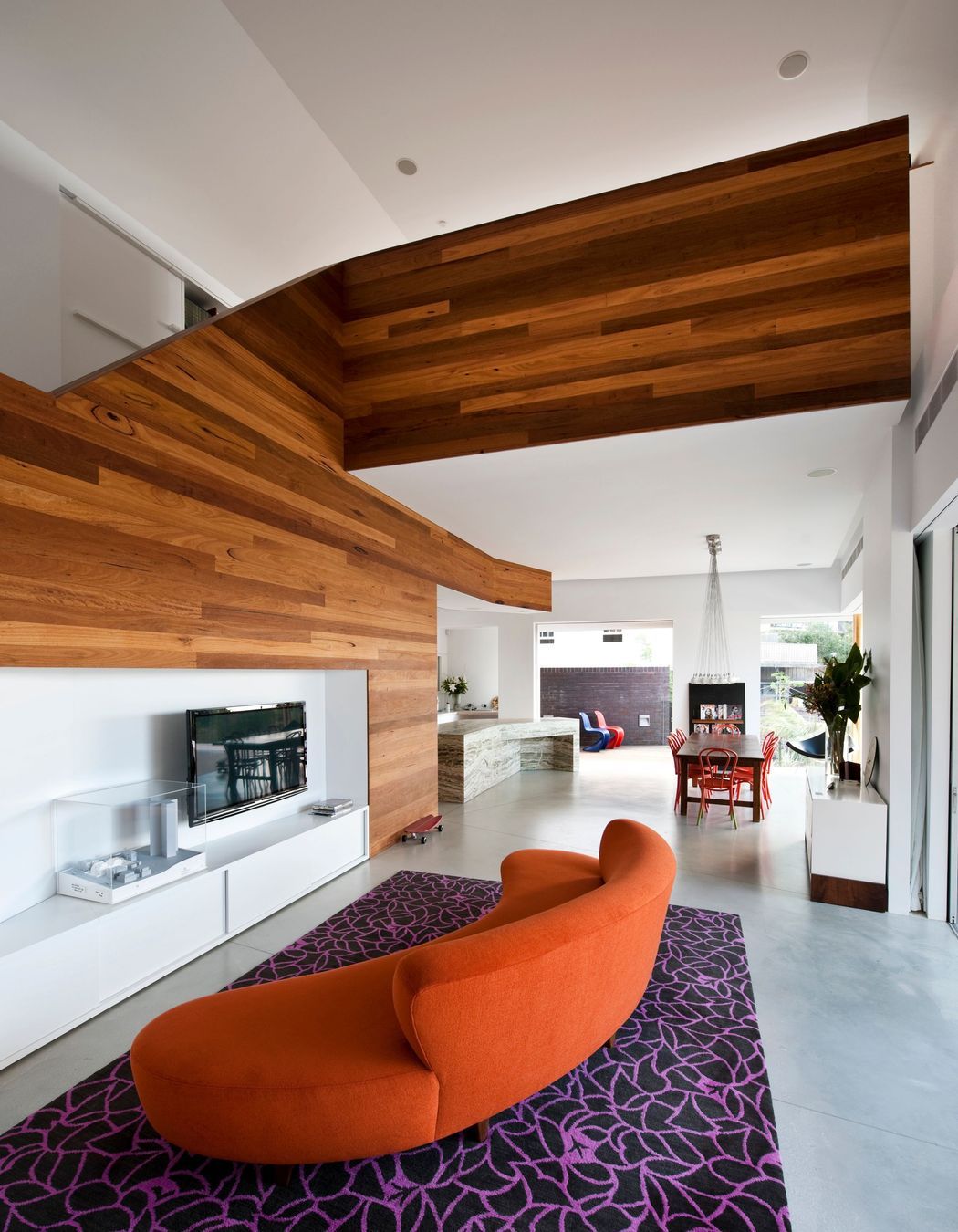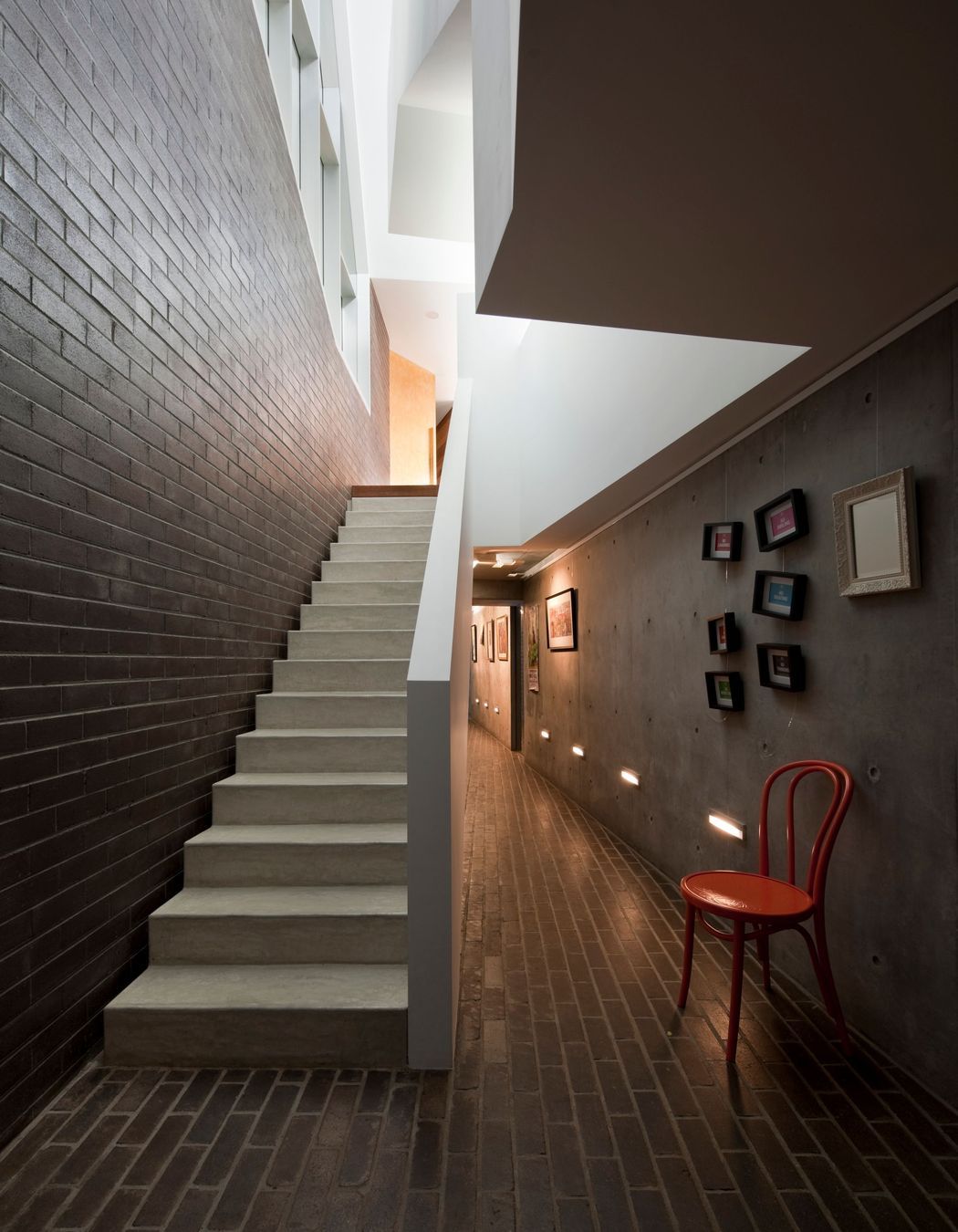The conceptual framework for this house was one of house as landscape. We set out to design a house that would have topography and where activities and functions were acted out on a terrain that flowed and folded and hinged the various levels and spaces of the house. The roof to the lower ground garage would be turfed and a garden would extend from children's bedrooms ramping down to lower gardens and undercroft play areas that doubled as parking spaces. A circuit of movement was created throughout the house flowing internally and externally vertically and horizontally, providing a dynamic and fluidity to the plan.
Parallel to the above was a philosophy of allowing forms to be determined by the forces of site, context, client, and authorities. An approach was set early in the design process to see what the council control plans would create if allowed. Envelope controls determined the form and outline with view corridors determining steps and cutouts in roof and wall forms. Context and heritage character statements determined finishes and detail. The landscape architects and structural engineers were extremely important in the design development and resolution of the concept. Beyond this the key figures in its delivery was the construction team who put plenty of blood sweat and tears into the project. A marriage of builder and architect delivered a unique bespoke house to a very patient and respectful client.
The house is for a family of 4 with many visitors from overseas resulting in a need for guest’s quarters. Off street and concealed parking was required, a capacity to remove and store shoes at the entry point, with a simple and direct connection to the living and sleeping areas. The rooms and study areas for the children was very important as well as a ballet practice area. A piano room was also an important part of the clients needs. Further to this they loved to entertain and the central space of congregation needed to be a special place. Height and volume and a sense of spaciousness were desired.
A palette of materials for the external was chosen that reflected the surrounding heritage context with traditional materials such as dark face brickwork, timber shakes, slate tiles and copper sheeting becoming the skins to the internal functional spaces of the new home. This approach has also provided a public and cultural benefit that enriches the streetscape and surrounds.
This in turn determined much of the interior finishes with face brick and timber cladding folding into the interior reinforcing the seamless nature of the design and the intention to blur boundaries between inside and out.
Sustainability and cost effectiveness were integral and fundamental to the design. Passive solar ESD principles were employed with best siting and orientation employed. The concrete base provided thermal mass. All water from the large roofs was harvested and re-used for irrigation, solar pool heating and hydronic floor heating were also incorporated and large operable windows and doors provided the interior with good cross ventilation.
Project Date: 2008
Project Team:
Mark Cashman, Steve Koolloos, Rowena Marsh, Jason Border, David Parsons, Alix Bond
Collaborators:
- Builder: Artechne
- Structural Engineer: Simpson Design Associates
- Landscape Architect: Aspect
- Quantity Surveyor: QS Plus
- Joinery: Duwa
- Planner: Mersonn
- Heritage Consultant: City Plan Heritage
Awards:
AWARD - 2011 WILKINSON AWARD – EXCELLENCE IN RESIDENTIAL BUILDING, AUSTRALIAN INSTITUTE OF ARCHITECTS NSW AWARD - 2011 HOUSES AWARDS – FINALIST: NEW HOUSE OVER 200M²





























